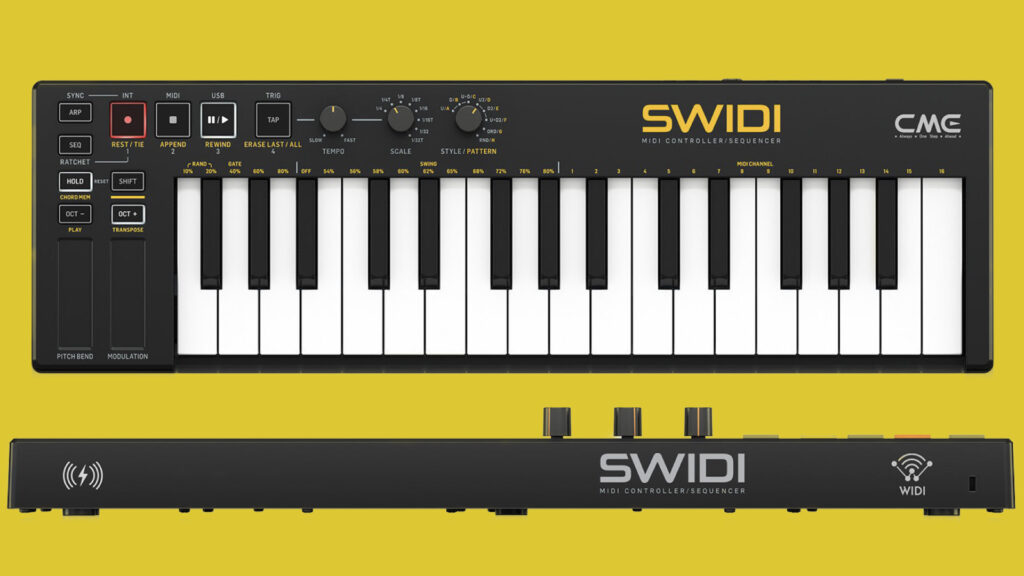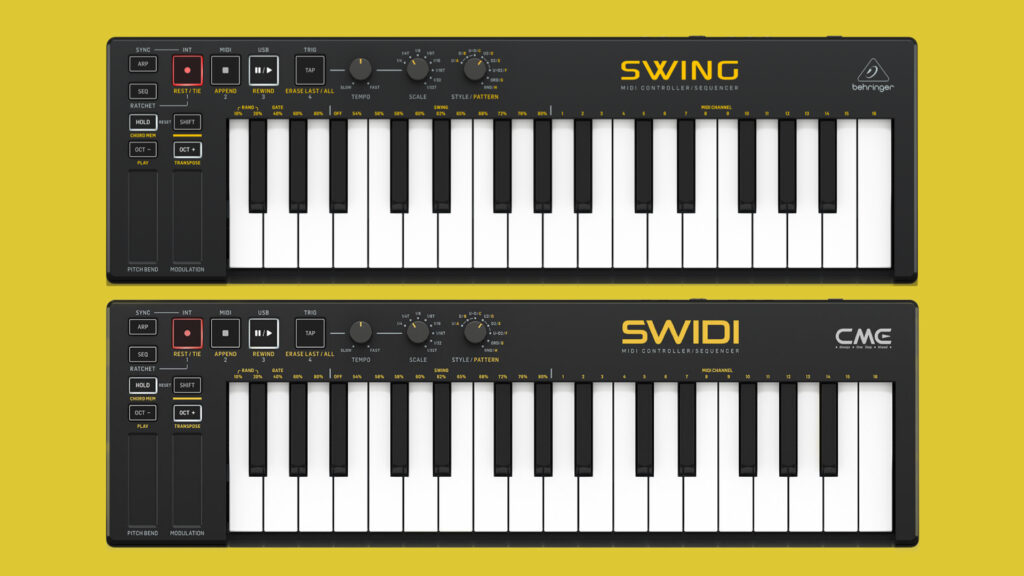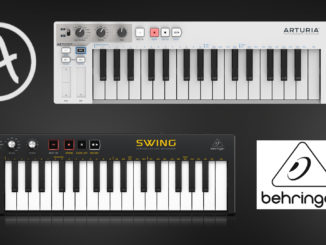CME SWIDI, a battery-powered bluetooth MIDI keyboard/sequencer that knocks off the design of the Arturia Keystep and Behringer Swing.
In November 2020, Behringer announced the Swing, a knockoff of the popular Arturia Keystep MIDI keyboard/sequencer. A news that caused huge discussions at the time. A release that I don’t support because the original product is still sold in the same form. Plus it’s not vintage like certain synthesizers or drum machines.
Now a manufacturer has turned Uli Behringer’s competition words into reality and cloned one of the Behringer products. It’s not a premature April 1st joke, it’s a real product.

CME SWIDI
SWIDI is a knockoff/clone of the Behringer Swing, which is also a knockoff of the Arturia Keystep MIDI controller/sequencer. So it’s a clone of a clone or how a certain industrial band would sing “I am just a copy of a copy of a copy“. Now CME has done what Behringer likes to do at other companies. Replicating current available products and offering them for a lower price.

In this case, a Behringer product is now being cloned by another Chinese company, so how bad is that? I think not at all if you remember the words of Uli Behringer that copying is good for competition. This validates his argument for cloning the Arturia Keystep. Let’s see how B. reacts to this new product announcement. To the feature set.
Like the “original” and “copy”, SWIDI features a velocity/aftertouch 32-key keybed with a built-in 64-step sequencer with support for 8-note polyphony. Plus ratcheting from the Swing. The user interface is also identical to Swing and is mostly on the left side. It offers buttons or record, stop, play… But that’s all that’s is same. CME has made some interesting changes.
Bluetooth & Battery Powered
New: the SWIDI comes with the CME’s own low-latency Bluetooth MIDI community-driven technology WIDI that transforms it in a wireless keyboard. You can connect it wirelessly to up to four peripherals. A MIDI-powered Bluetooth adapter is also available for older MIDI hardware as a separate purchase.
They promises 3ms latency and 65ft / 20m plain sight range between WIDI equipped devices. There is also the WIDI app for iOS and Android where you can optimize the latency and jitter performance. Unlike the Keystep or Swing, CME removed all connectivity including the MIDI ports, analog CV/gate/mod, and more. Thus, it is pure wireless keyboard.
Another interesting point is that the SWIDI offers an internal battery which can be charged wirelessly in 2 hours and used for up to 8 hours. And they say they don’t have a component shortage. A statement that is clearly aimed at Behringer’s latest product announcements.
First Impression
The question I ask myself here is whether the Swing is an OEM product. One that is actually produced by another company and can be adapted according to feature needs. Because on the SWIDI all the functions are identical except for the connectors and with a new battery and bluetooth support.
CME SWIDI will be available on May 2nd, 2022 for a retail price of $79 USD/79€.
More information here: CME




China
Makes
Everything
indeed they do. often consumer product manufacturing is presented as a turn key operation – you just pick what you want them to build out of a catalog and they just put your brand logo on however many you order, the rest get someone else’s logo(s). consumer optical astronomy went this way 10+ years ago. branding is only skin deep :0)
Probably worth noting that their web site says more details about this product will be released exactly on April 1.
This info came several days after the announcement 😉